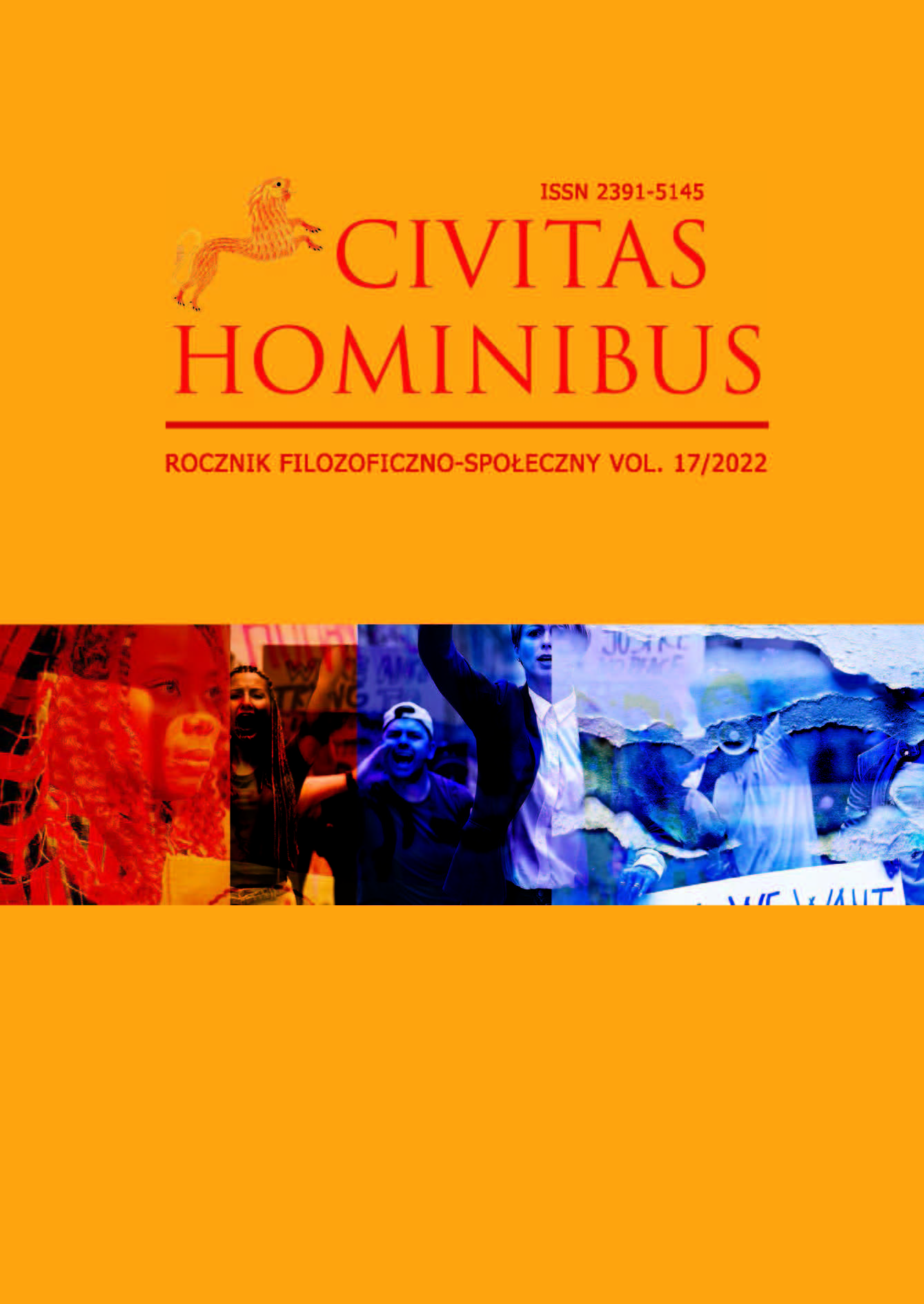Application of biographical interviews in research on the quality of life of people with disabilities
DOI:
https://doi.org/10.25312/2391-5145.17/2022_06mgKeywords:
disability, biographical interview methods, public policy, quality of life researchAbstract
The aim of this article is to present the application of the biographical interview method in research on the life quality of people with disabilities. In the article, the author addresses the problem of whether this method is appropriate in the research and evaluation of public policy in this field. The research assumption adopted by the author takes into account the fact that the method of biographical interview in the research correctly allows for the synthesis of conclusions drawn from the study of individual cases and observations, as well as for generalising and searching for a broader context from the statements of the respondents. Firstly, the author will assess to what extent the assumptions of the analysed method correspond to the topic of quality of life research, especially in the context of disability. Then, an assessment of the extent to which the method of biographical interview is used to study the issue of disability, especially in terms of quality of life. The operationalisation of the study was based on a review of the literature on the subject in Polish and English from 2006–2021.
Downloads
References
Butler-Rees A., My Existence is Resistance: Exploring spaces and forms of disability activism in the United Kingdom during a time of austerity, University of Southampton, 2020.
Czerwińska K., Funkcjonowanie osoby stopniowo tracącej wzrok w przestrzeni edukacyjno-rehabilitacyjnej, „Forum Pedagogiczne” 2016, nr 1.
Ivkov B., The Biographical Interview: From the Personal History of the Disabled Person to the Social (Re)construction of the Social Historical Environment of Disabled People, [w:] S. Denchev, E. Lazarova, E. Ignatova (red.), The Role of Ego Documents in the History of Science, Za Bukwite, Sofia 2014.
Kaźmierska K., Badania biograficzne w naukach społecznych, „Przegląd Socjologii Jakościowej” 2013, t. IX, nr 4.
Ledger S., McCormack N., Walmsley J., Tilley E., Davies I., „Everyone has a story to tell”: A review of life stories in learning disability research and practice, Wiley, New York 2021.
Lindyberg I., (Nie)pełnosprawność w doświadczeniach dorosłych osób z głębszą niepełnosprawnością intelektualną, „Niepełnosprawność” 2014, nr 15. Międzynarodowa Klasyfikacja Funkcjonowania, Niepełnosprawności i Zdrowia (ICF), WHO, Genewa 2001.
Niepełnosprawność, [w:] Encyklopedia PWN, https://encyklopedia.pwn.pl/haslo/niepelnosprawnosc;3947453.html [dostęp: 10.08.2019].
Pyżalski J., Podgórska-Jachnik D. (red.), Badanie potrzeb i satysfakcji z wybranych usług skierowanych do rodzin z dziećmi z orzeczoną niepełnosprawnością w wieku 8–16 lat, Instytut Medycyny Pracy w Łodzi na zlecenie Regionalnego Centrum Polityki Społecznej w Łodzi, Łódź 2015.
Rosenthal G., Badania biograficzne, [w:] K. Kaźmierska (red.), Metoda biograficzna w socjologii. Antologia tekstów, Nomos, Kraków 2012.
Schütze F., Analiza biograficzna ugruntowana empirycznie w autobiograficznym wywiadzie narracyjnym. Jak analizować autobiograficzne wywiady narracyjne, [w:] K. Kaźmierska (red.), Metoda biograficzna w socjologii. Antologia tekstów, Nomos, Kraków 2012.
Van Oorschot W., Balvers M., Schols M., Lodewijks I., European Comparative Data on the Situation of Disabled People: an annotated review, University of Leeds, Leeds 2009.
Downloads
Published
Issue
Section
License
Copyright (c) 2022 Akademia Humanistyczno-Ekonomiczna w Łodzi

This work is licensed under a Creative Commons Attribution-ShareAlike 4.0 International License.



